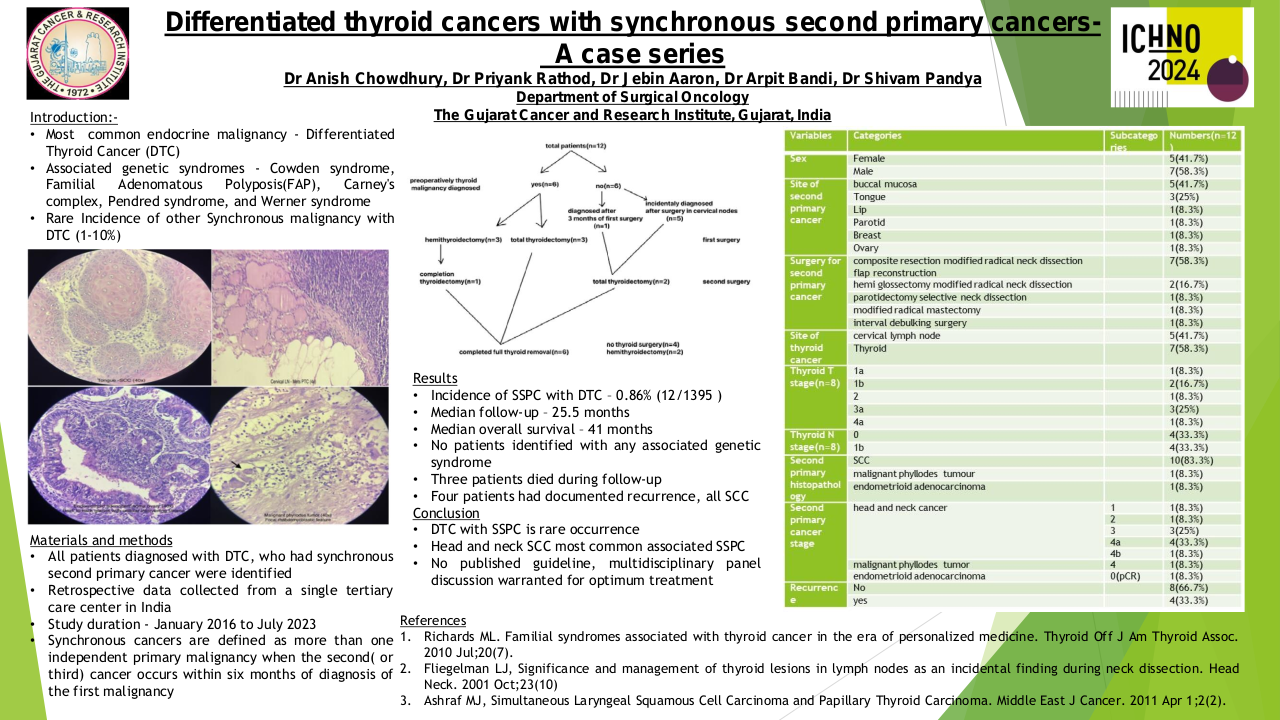Impact of Anatomopathological Characteristics on Salivary Gland Carcinoma Prognosis Undergoing Radiotherapy
Purpose/Objective
Salivary Gland Carcinomas (SGCs) are a group of rare tumors characterized by their aggressiveness, high recurrence and metastasis rates, and significant heterogeneity. Treatment involves surgery and adjuvant radiotherapy (RT). Systemic therapy is personalized based on immunohistochemical and genetic markers. The main aim of this work was to assess the impact of the immunohistochemical and histological characteristics of SGCs on overall survival (OS) and disease-free survival (DFS) in patients undergoing RT.
Material/Methods
Included cases of SGCs treated at the RT Service of CHUSJ between January 2018 and June 2023, with a total dose of 60-70 Gy in 30/35 fractions. Statistical analysis was performed using IBM SPSS Statistics version 29; survival analysis (OS and DFS) was conducted using the Kaplan-Meier method and Log-Rank test; a type I error of 0.05 was considered.
Results
We included 24 patients with SGCs of the major glands, with a median age at diagnosis of 73 years, and 70.8% were male. The treatment intention was palliative in 16.4%, and among those with curative intent, 25% developed recurrent/metastatic disease. The most frequent histological subtypes were squamous cell carcinoma (37.5%), salivary duct carcinoma (16.7%), and myoepithelial carcinoma (12.5%). With a median follow-up of 10 months, we observed an OS of 94.1% and a DFS of 67.8% at 9 and 20 months. Immunohistochemical expression of Ki67 and cyclin D1 had a positive impact on DFS (p=0.027).
Conclusion
Despite the limitations arising from the sample's size and heterogeneity, this study suggests that the expression of Ki67 and cyclin D1 may have a prognostic impact on patients with SGCs undergoing RT.
Lassche, G., et al. Identification of Fusion Genes and Targets for Genetically Matched Therapies in a Large Cohort of Salivary Gland Cancer Patients. Cancers, 14, 4156. (2022). https://doi.org/10.3390/cancers14174156L. S. Monteiro et al, Epidermal growth factor receptor immunoexpression evaluation in malignant salivary gland tumours. J Oral Pathol Med 38, 508–513. (2009)Soper, M. S., Iganej, S., Thompson, L. D. R. Definitive treatment of androgen receptor-positive salivary duct carcinoma with androgen deprivation therapy and external beam radiotherapy. PMID: 23720164. DOI: 10.1002/hed.23383.





